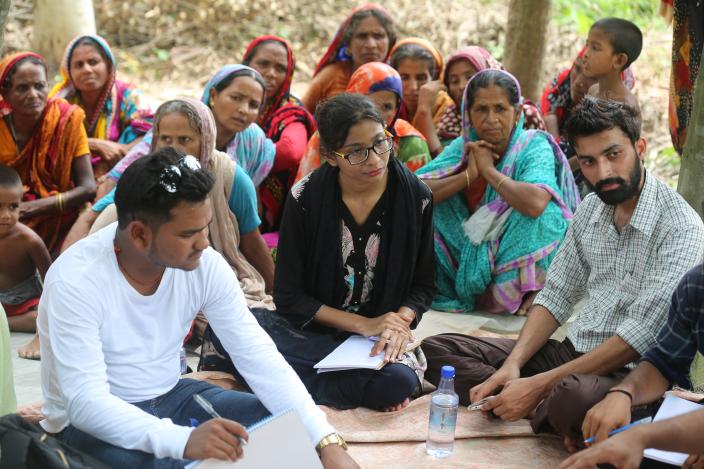The Covid-19 pandemic revealed serious gaps in economic, social and political systems around the world and revealed crises of food, economy, health and climate. The theme for the 2021 International Youth Day (IYD), “Transforming Food Systems: Youth Innovation for Human and Planetary Health”, highlights the need for greater youth participation and leadership in transforming food systems by making them more inclusive and sustainable. As part of this year‘s IYD celebration, we recognize some promising youth-led innovations aimed at revolutionizing local food systems.
Young people, representing 16% of the global population (UN, 2019), have been among the hardest hit by the pandemic with education, job opportunities, nutrition and health being severely affected. According to UNICEF (2019), South Asia has the largest young labour force in the world, with nearly 100,000 young people entering the labour market every day. Moreover, according to the Global Food Policy Report (2021), 72% of the youth from the region are likely to be unemployed - in the aftermath of the pandemic. In countries such as India, Nepal and Bangladesh, with a significantly larger young population, the impact on the labour force is predicted to be even greater as young people are three times more likely to be unemployed than adults (SDG Report, 2019).
In this dire situation, there is a crucial need for healthy and sustainable food systems through multi-sectoral engagement. And youth have a significant role to play in this. Eating habits developed from a young age impact health on both an individual and global level. Moreover, through mobilisation and demonstrations, young people have massive power to hold policy-makers, food producers and companies accountable. Recognising this, we as part of the Oxfam-convened TROSA Youth Basin Ambassadors (YBA), are incorporating these ideas in our regional dialogues as well as on-ground interactions. To us, it is evident that the four key areas of youth involvement in transforming existing food systems are: education, empowerment, innovation and entrepreneurial solutions.
We, the youth, can employ creative approaches in educating and engaging with the general population for sustainable living. We can be at the frontline, advocating against injustices in the current food system which hurt indigenous communities, women and marginalised farmers. We can also raise awareness about the need to make farming practises climate-friendly. In short, young people can become change makers by taking initiatives for local production and consumption cycles, community-level engagement for public kitchen gardens, helping set up grain banks, composting and using food waste for producing home based manure etc.
We have witnessed that along with education, innovation and agricultural entrepreneurship are also key to youth involvement in global food systems. Young agripreneurs across South Asia are running successful ventures based on sustainable practises, while also earning profits. One such notable example is Ravi Khokar, a young agriprenuer running the Arvind Dairy Farm in Haryana. Integrating livestock with traditional agriculture and experimenting with different cattle breeds, Ravi created an optimum set-up suited to local conditions. He also established a strong network and market to sell milk to Nestle as well as in adjoining villages.
Another inspirational story is that of Farjana Akter from Bangladesh. The fishery sector in Bangladesh is traditionally dominated by men. Farjana and a group of other young women decided to create a space for themselves by starting an online business to sell fish. Fighting her way through gender barriers in the market, Farjana now runs her own successful fishery business.
These youth-led initiatives demonstrate the vigour, creative energy and entrepreneurial drive needed to advocate for and lead innovative approaches in transforming existing food systems. Let us all come together to be the youth who can be the change!
Authors:
Anu Bothra and Ritu Priya are Youth Basin Ambassadors for the Regional Youth Dialogue (RYD) on Water, Climate and Human Rights (2021) by TROSA, Oxfam. Views expressed are personal.
